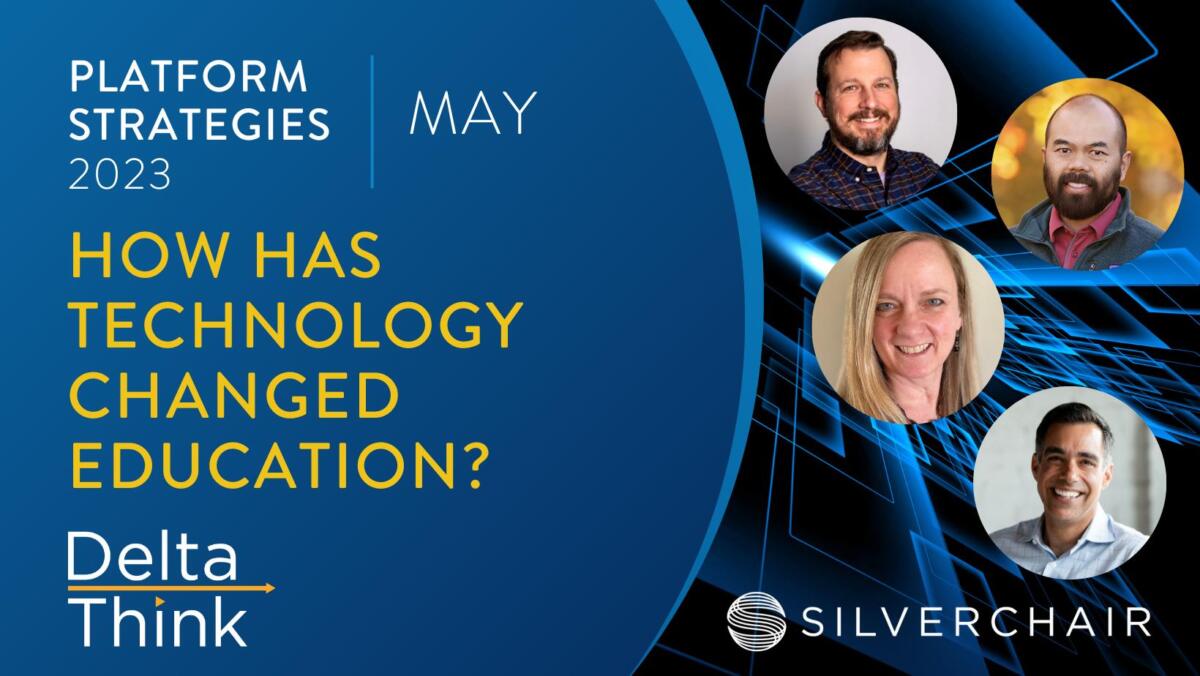The group reflected on the changing role of instructors due to technological advancements and the emerging digital products that enhance students’ learning. The discussion highlights the evolving nature of education, the impact of technology on learning approaches, and the individualized use of digital resources by students in medical education.

Speakers:
- Diane Harnish, Senior Consultant & Education Practice Director, Delta Think, Inc (Moderator)
- Jake Zarnegar, Chief Business Development Officer, Silverchair (Moderator)
- Jonathan Wisco, Associate Professor at Boston University Aram V. Chobanian & Edward Avedisian School of Medicine, Department of Anatomy and Neurobiology
- Brian Moore, Director of Online Learning, Assessment, Examinations & Curriculum Planning, AAOS
- Gabrielle Lakis, M1 at Boston University Aram V. Chobanian & Edward Avedisian School of Medicine
- Avenelle Onaifo, M1 at Boston University Aram V. Chobanian & Edward Avedisian School of Medicine
GL: My perspective right now on the pace of education change is that, as a student, it can be a little overwhelming because there are so many resources out there. What is best for me to use now? That is going to change as I progress through my education and what stage I am at.
AO: I feel like there is a lot of space for new technology to come in to this space since a lot of education is going towards personalized education. The Boston University School of Medicine (BUSM) has really switched to a more personalized, "flipped" classroom setting, which allows learners to learn at your own pace.
JW: As far as the pace of change, I have been part of curriculum redesign and how we use content ever since I was a postdoc. And since then, it has accelerated at an incredible pace. The most recent change was post-pandemic, with the ability to interface in virtual environments like this. At the same time, electronic media and content have started being deployed in a more customizable way. Now, we can’t have this conversation without talking about ChatGPT at some point because that changed everything.
JZ: Given these changes, what technology are you currently using and how do digital products play a role in your day to day?
AO: In terms of digital products, many students are taking an individualized approach to supplement the curriculum given by BUSM. I have been using Osmosis, which is usually incorporated into our curriculum at some point. And then some Boards and Beyond videos to supplement that learning.
GL: My personal favorite is Boards and Beyond. It provides a perfect amount of information and supplementary questions at the end of every video that help me know, did I understand what I was watching or was that just me not absorbing anything?
I use Osmosis once it is a topic that I have learned once or twice. It's too dense as a first pass material for me. I use the materials that our professors provide for us more for a focused understanding of what my professors think is important for me to understand. People use them all in different ways. A couple of other things that people use are Pathoma and Sketchy. That is the big picture of what it seems like a lot of medical students are using in their education today.
JW: The most important thing that I heard our two learners mention is that each of them are using different resources in different ways. If I polled 159 of my students in our medical school, you would get 159 different answers for how they use content and which software titles they use.
And that is worth mentioning because we have designed the curriculum in such a way that our students can interface with content learning as the first phase. They learn the content, but what we do in class in a fully flipped environment is to apply the content. So, we expect the students to come into that learning space having some basic knowledge, but not necessarily mastery of that content.
Change occurred slowly with the improvement of technological deployment of content. It was not until the pandemic that we realized we were doing everything wrong. We realized that as instructors, if we were just delivering content, we were doing a total disservice to our students. They needed us to be more like facilitators and verifiers of their learning.
Because with the technological revolution, instead of me being the content expert, in this case anatomy, neurobiology, histology, or embryology, my students could go anywhere to get that content. In fact, now they can create it on their own with ChatGPT, with the internet at their fingertips. Instead of telling them what anatomy is, I am helping them discover and understand why that anatomy is important. So, my role has changed over my career, and I love the change. That means that there is not a one-stop solution for any student. The textbook does not exist anymore. It is not useful to us.
Want to hear more? Check out the full webinar, 2023 May Strategies Spotlight: How has Digital Education impacted how we learn, teach, & research?